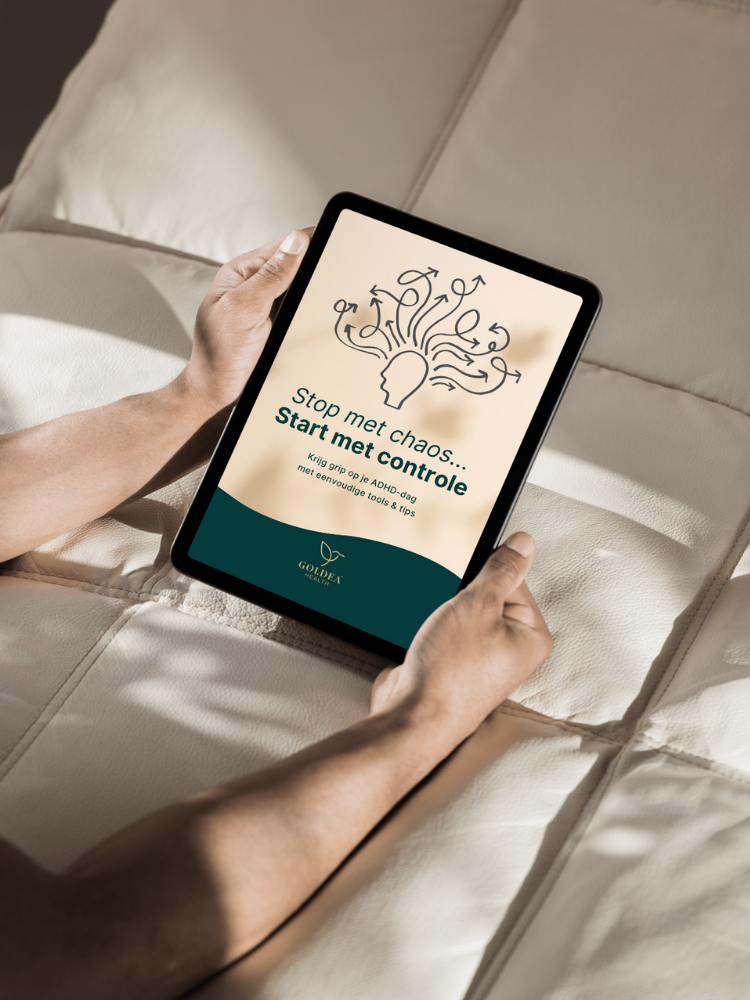Reading time: 2 minutes
Never feel gloomy again in winter with these 5 tips
It's that time of year again. Winter time: the time when the days get shorter, the nights get longer, and winter time officially begins on Sunday, October 29th. In this blog post, we'll guide you through the transition to this cozy, yet sometimes challenging, period. We understand that winter time and the changes in daylight hours affect our biorhythms and moods.
That's why we're sharing tips and tricks to keep your biorhythm in top shape, banish gloom and embrace winter time with a smile on your face.
The biological clock
Your body has a built-in clock that regulates everything, from when you wake up to how you feel throughout the day. This is called the circadian rhythm, or your biorhythm. The circadian rhythm follows roughly a 24-hour cycle and influences things like your sleep pattern, hormone production, and body temperature. Light and darkness play a crucial role in this.
What drives this rhythm?
These are the clock genes, the Suprachiasmatic Nucleus (SCN), and the pineal gland (a very small part of your brain that plays an important role in your sleep. Imagine it as your body's sleep button).
Clock genes are like conductors of an orchestra, telling your cells what activities to perform at what time. The SCN, located above your optic nerves, is the "supreme conductor" that responds to light and dark. It sends signals to other parts of your brain and even influences the production of the sleep hormone melatonin.
So, when there's less light, like at night, the SCN tells the pineal gland to produce more melatonin, making you sleepy. It's a sophisticated system that significantly influences how you feel and function. Understanding how all of this works can help you understand and optimize your biorhythm.
The effect of winter time on your biorhythm
Daylight Saving Time: suddenly it gets dark an hour earlier, and your body clock is completely oblivious. Some of you will immediately experience the impact on your mood and energy.
- A different sleep-wake rhythm
- Sleep problems
- Concentration problems
- Disturbances in eating patterns and bowel movements
- Headache
- Irritability
- Mood swings
- Chronic sleep deprivation
But don't worry, we're here to tell you how to deal with this.
Tips: what to do
First, welcome winter time as an opportunity for change. Look at the clock, set it back an hour, and embrace this fresh start. Winter represents introspection, offering the opportunity to rest and recover. Generally, the winter season is seen as a time for introspection, self-care, and nurturing the body to maintain balance.
And now, our five essential tips to beat winter blues and get your biorhythm back in balance!
Tip 1: Biorhythm and regularity
Maintain a regular day and night rhythm. Go to bed and get up at set times, even on weekends. This helps your body clock stay stable.
Tip 2: Be aware of light - Wake-up Light
When you wake up, it's a good idea to immediately throw the curtains wide open and let yourself be welcomed by the daylight, which will fill you with the necessary energy!
Bonus tip: Give your body clock a boost with a wake-up light. This simulates a natural sunrise and helps you start your day feeling refreshed and refreshed.
Tip 3: Create Rituals - Evening Routine
Create a calming evening routine to prepare yourself for a good night's sleep. For example:
- Take a warm shower.
- Read your favorite book for 30 minutes.
- Meditate for relaxation.
- Enjoy a bath with epsom or magnesium salts.
- Write down three positive things.
- Make a to-do list for tomorrow.
- Create a calm atmosphere with dim lighting and a candle.
- Turn off the TV and mobile phone an hour before going to bed.
- Drink soothing herbal teas (e.g. lavender, chamomile, lemon balm).
Tip 4: Pay attention to your diet
Eat nutritious, balanced meals and avoid excessive sugar and caffeine. Diet plays a crucial role in maintaining your circadian rhythm.
Tip 5: Move
Stay active, even on dark winter days. Exercise stimulates the production of feel-good hormones and keeps your energy levels up. Preferably outdoors: so why not take a nice walk, cycle to work, and maybe even do a workout outside?
Bonus tip: Winter pack
Winter is a season full of challenges, where our bodies and minds often require extra attention and care. To meet these challenges, the Goldea Health Winter Pack can be a valuable addition to your routine.
The Winterpack , with its carefully formulated natural supplements and supportive products, is designed to help you balance your biorhythm and reduce low mood during the dark winter months. It can help you maintain your energy, strengthen your immune system, and promote deep, restful sleep.
Click here and order The Winterpack .
Conclusion
With the right approach and a little dedication, you can embrace this time of year and keep your biorhythm on track. We hope our tips have inspired you and that you'll approach this winter season full of energy and good spirits.
Do you have any questions or would you like more advice about treating mental exhaustion? Feel free to contact us: Click here for free advice. We're always available to provide free, personalized advice from our orthomolecular therapist, Cynthia.
Need more inspiration?
Visit our Instagram page or check out our other recipes and blogs for more healthy and tasty ideas.



